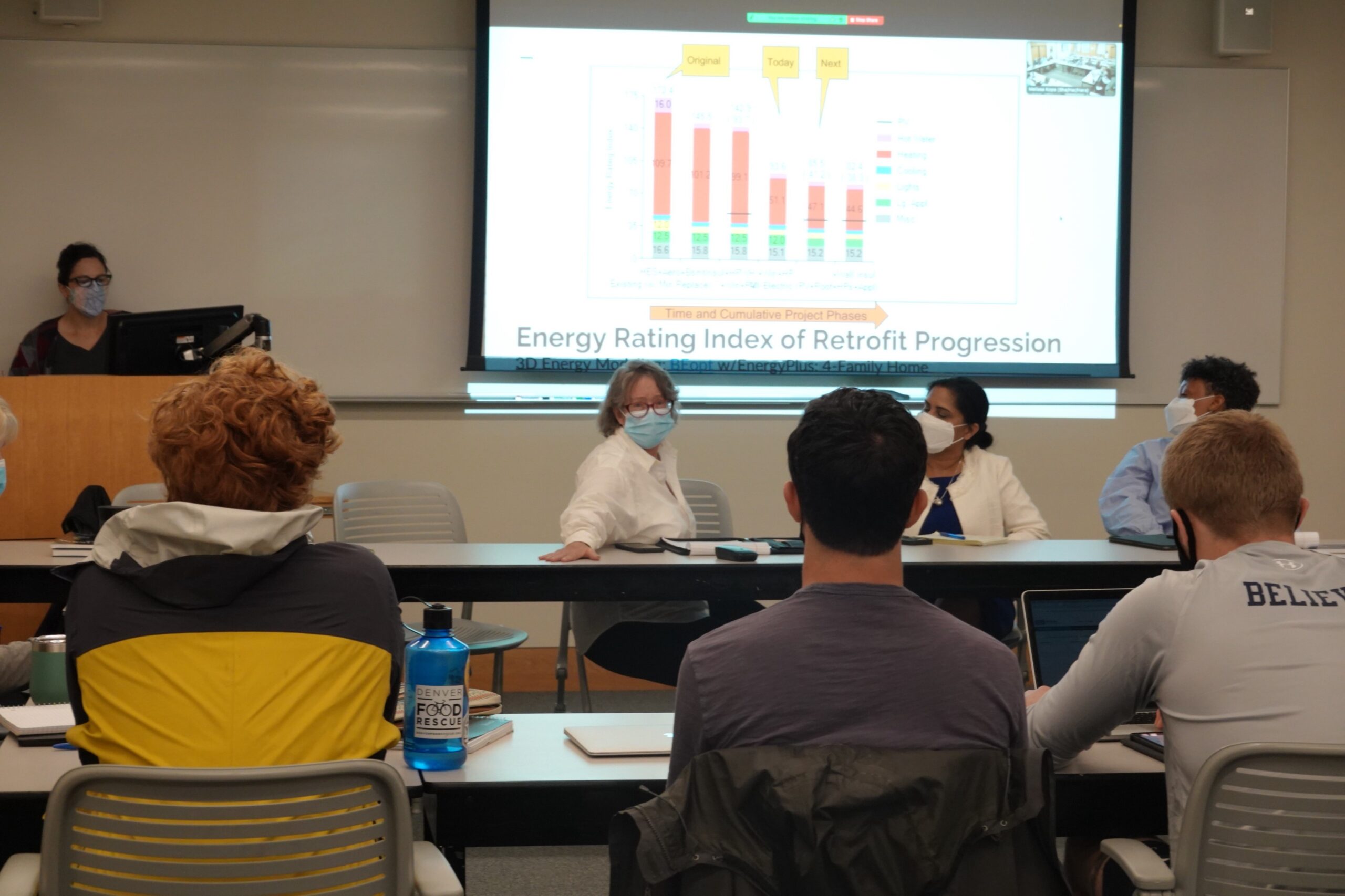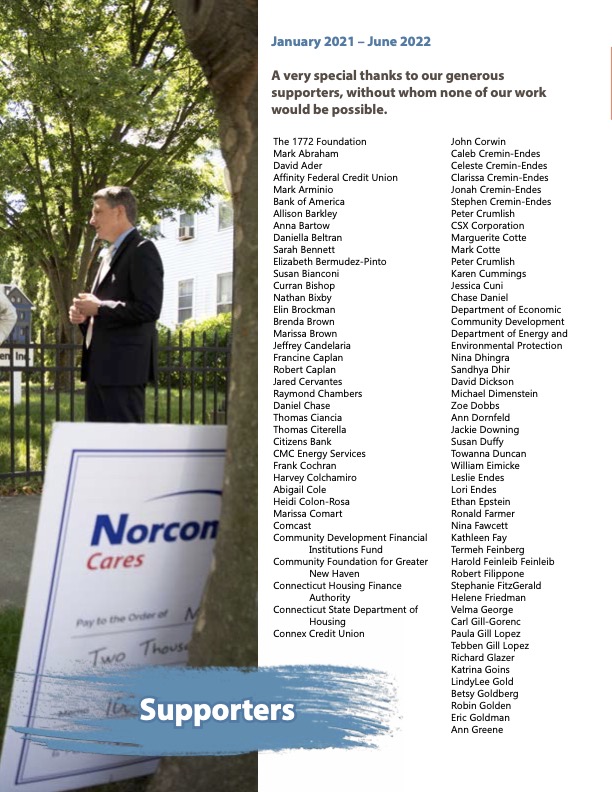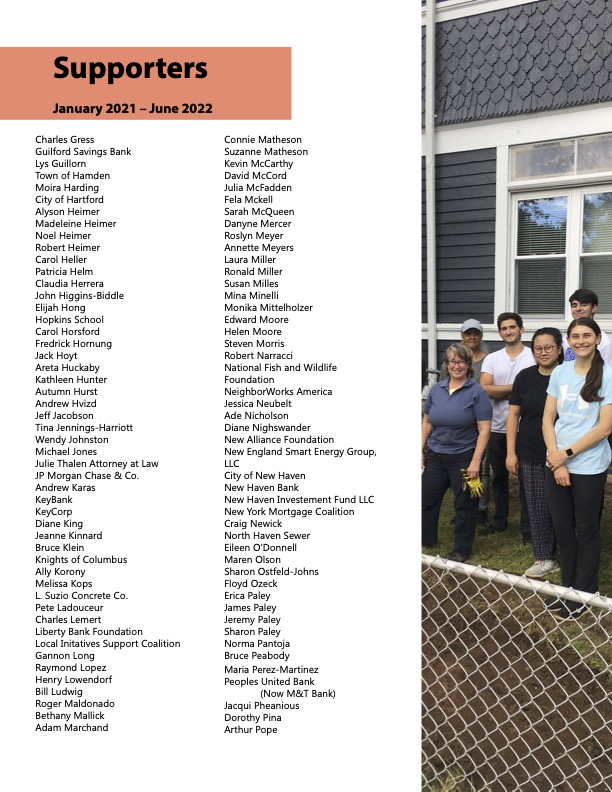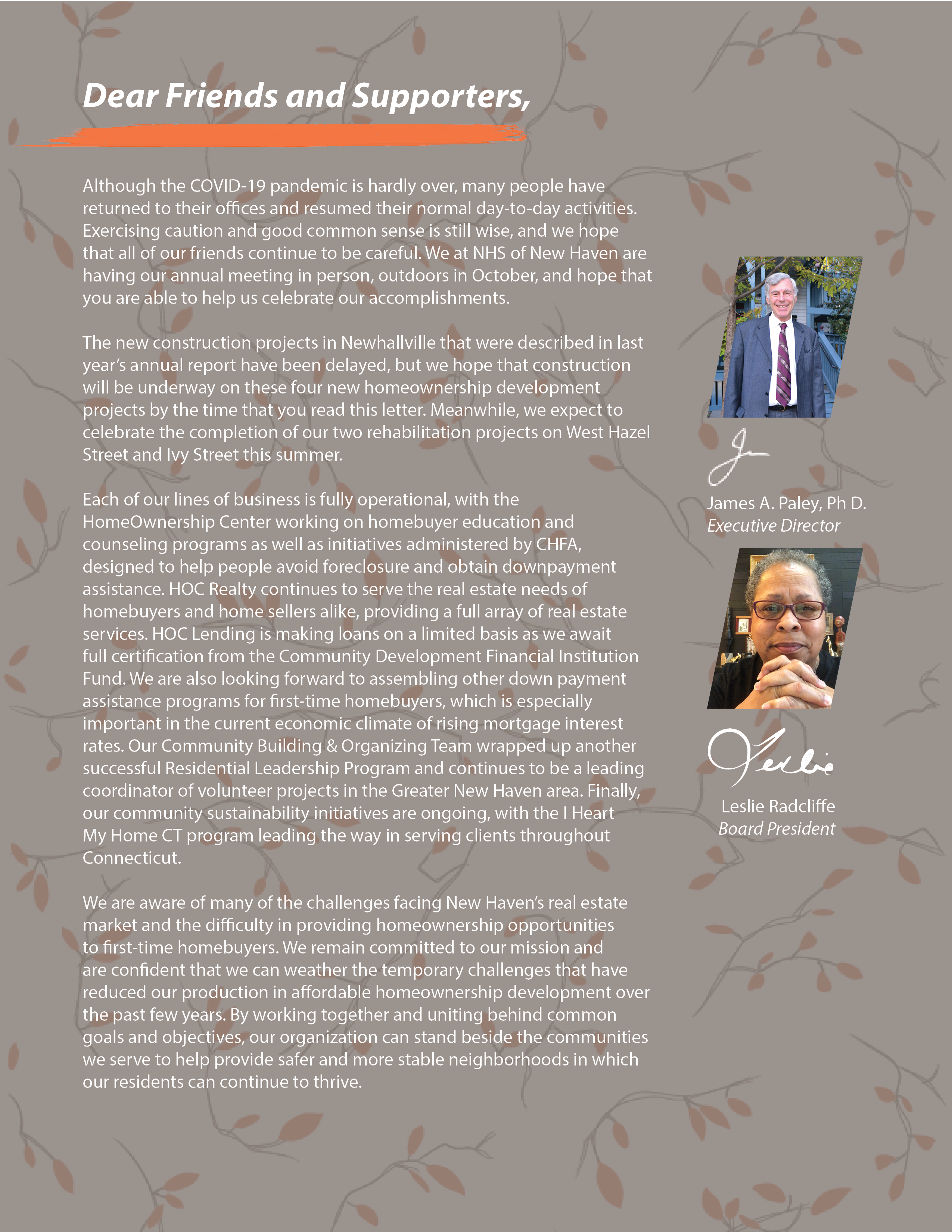On a particularly rainy first day of fall, Kathy opened her presentation to the Yale School of Environment students with the sentiment that “most people who need affordable housing aren’t living in affordable housing.” She continued, noting how important it is to address the role of energy in unaffordable housing. With a map of the United States on screen, the students saw the energy burden on Connecticut homes, noting that owner-occupied houses are worse than rental homes, with low-income people being the most affected.
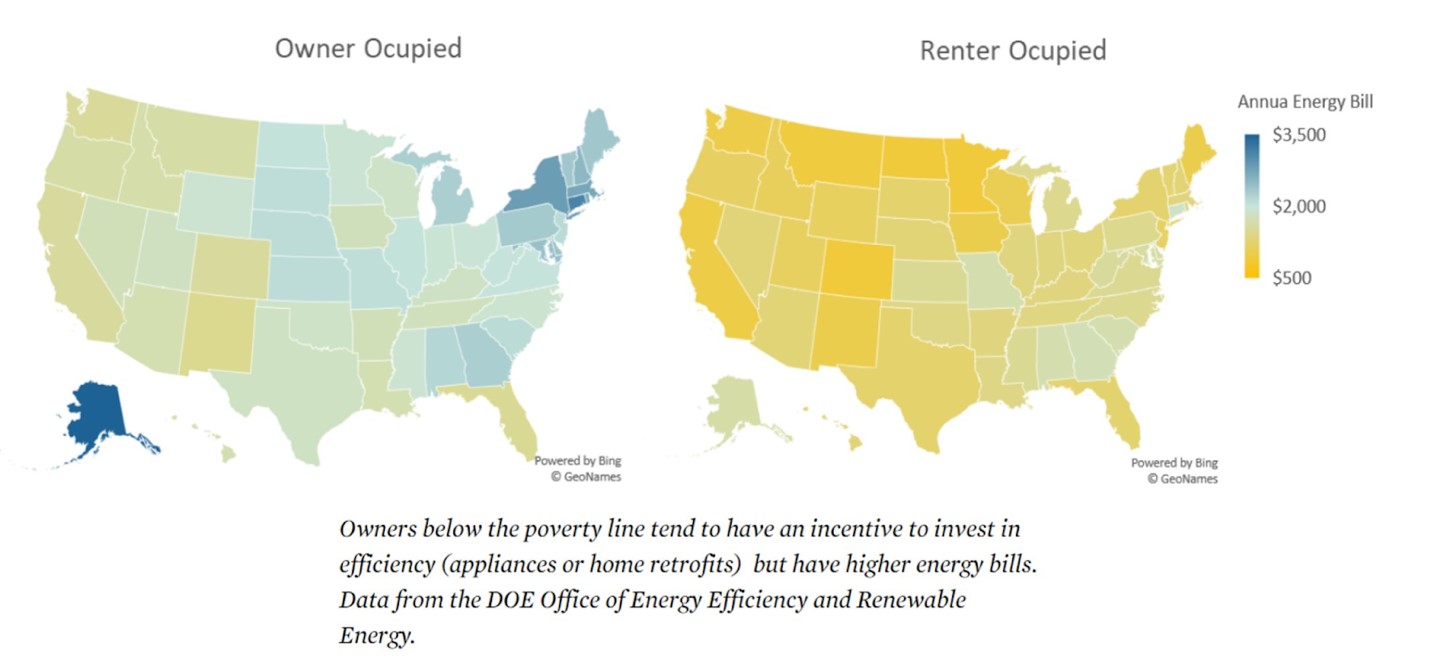
Then, the slide behind Kathy read, in big, bold letters, “Community Matters.” This is at the heart of NHS, and Kathy drove this point home. She posed the question, “Where is affordable housing located near you?” She received some mumbles from students and went on to say, “Think about where you live and the neighborhoods around you that have similar housing but aren’t maintained.” This appeared to resonate with the class as a few students shouted out various descriptors of a dilapidated living space.
Community matters, and ownership matters. This brought Kathy to the issue of “energy justice.” A lot of the communities that have unaffordable housing, had been redlined communities. The students previously learned in class that red lines were drawn around areas that were majority Black neighborhoods and were deemed “hazardous.” This racially discriminatory act denied Black people mortgage loans and various financial services required to purchase a home.* Although redlining was banned 50+ years ago, the systemic impact of redlining is still very evident, even in New Haven. A historically redlined area today manifests as a community with people of color living in financial instability as renters, not homeowners.
The essence of this issue goes even further because owning property is one way of building generational wealth. Kathy added, “Being able to keep the property in the family becomes difficult when you’re struggling with energy bills and leaky, old buildings.” This is a common plight in formerly redlined communities and creates a snowball effect: people are living in a formerly redlined area where past generations did not have the ability to finance mortgages. This means that when houses were not passed down to future generations, poverty is still rampant today, thus, generational wealth was never achieved.
Kathy lifted the energy in the room and restored hope when she told the students that change is possible, and NHS is taking steps to make this change a reality. NHS works to rectify these old, “leaky” houses, transforming them into safe, energy-efficient, affordable homes. Kathy explained that it isn’t enough to tell people to start with behavioral changes. Switching light bulbs only goes so far in impacting an energy bill when the roof is simultaneously collapsing and the basement is filled with mold. This is why NHS usually does full “gut” rehabilitations, to create more energy efficiency.
She explained that NHS also wants to create conditions where the client’s default decision is the best, meaning that there were properly implemented plans, so a customer knows what to do when disaster strikes. Prevention is the goal, rather than responding to the effects of a disaster. This work is done by I Heart My Home CT, an NHS program. Clients get counseled in ways to have these conversations with landlords, how to identify trusted services (for example, barrier remediation programs to remove mold or asbestos), and the advantages of getting home energy audits.

Looking into the future, the panelists hope to see the intersection of energy efficiency and equity be more prevalent. One way to accomplish this is through a mandated landlord energy-efficiency requirement. Kathy is a strong proponent of this. She left the students with a call to action: “Reach out to your local representatives.”
The Connecticut General Assembly proposed Governor’s Bill No. 5041, An Act Concerning Home Energy Affordability for Home Renters, in February 2022. The bill essentially holds landlords accountable when it comes to transparency with “home energy labels.” Tenant right-to-know is important. Kathy believes that “your voice matters.” If people use their voice to encourage their local representatives to vote in favor of this bill next session, they will have the power to change the trajectory of energy justice in Connecticut.

